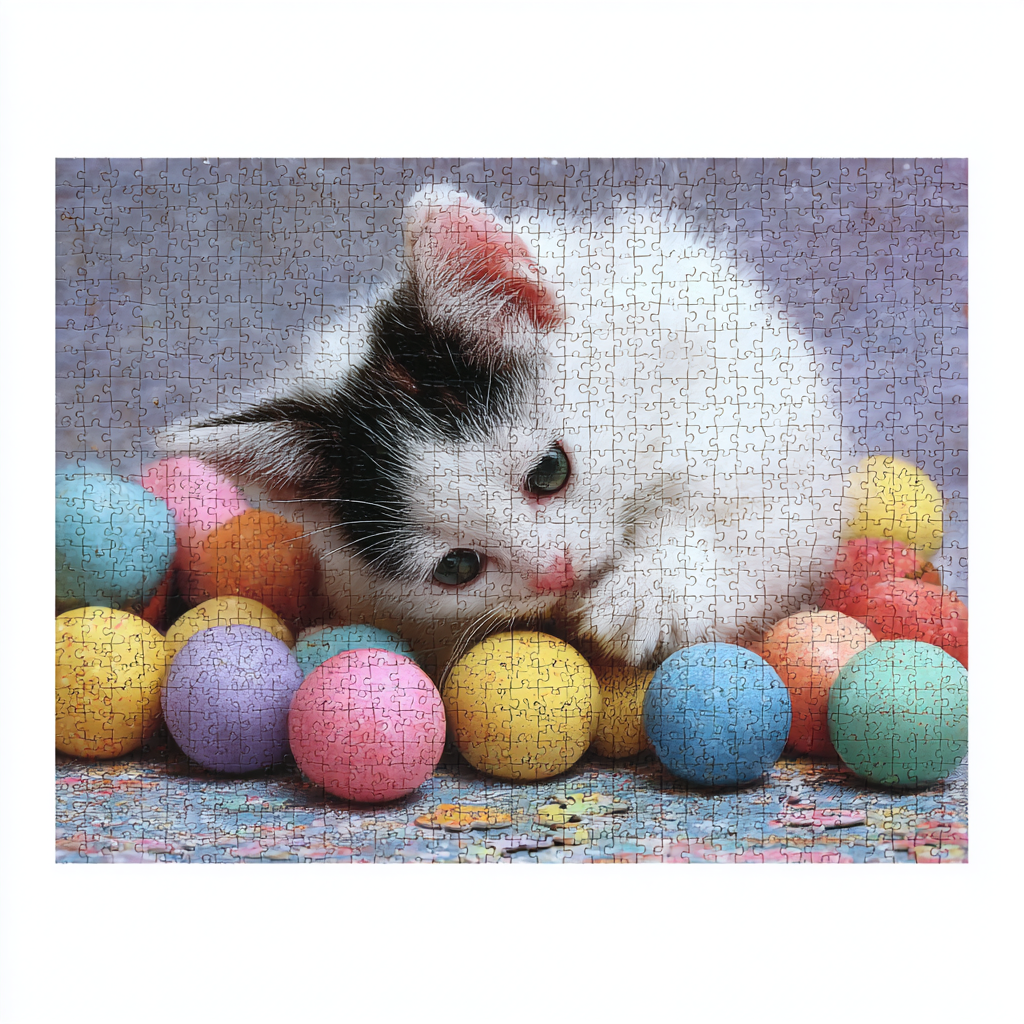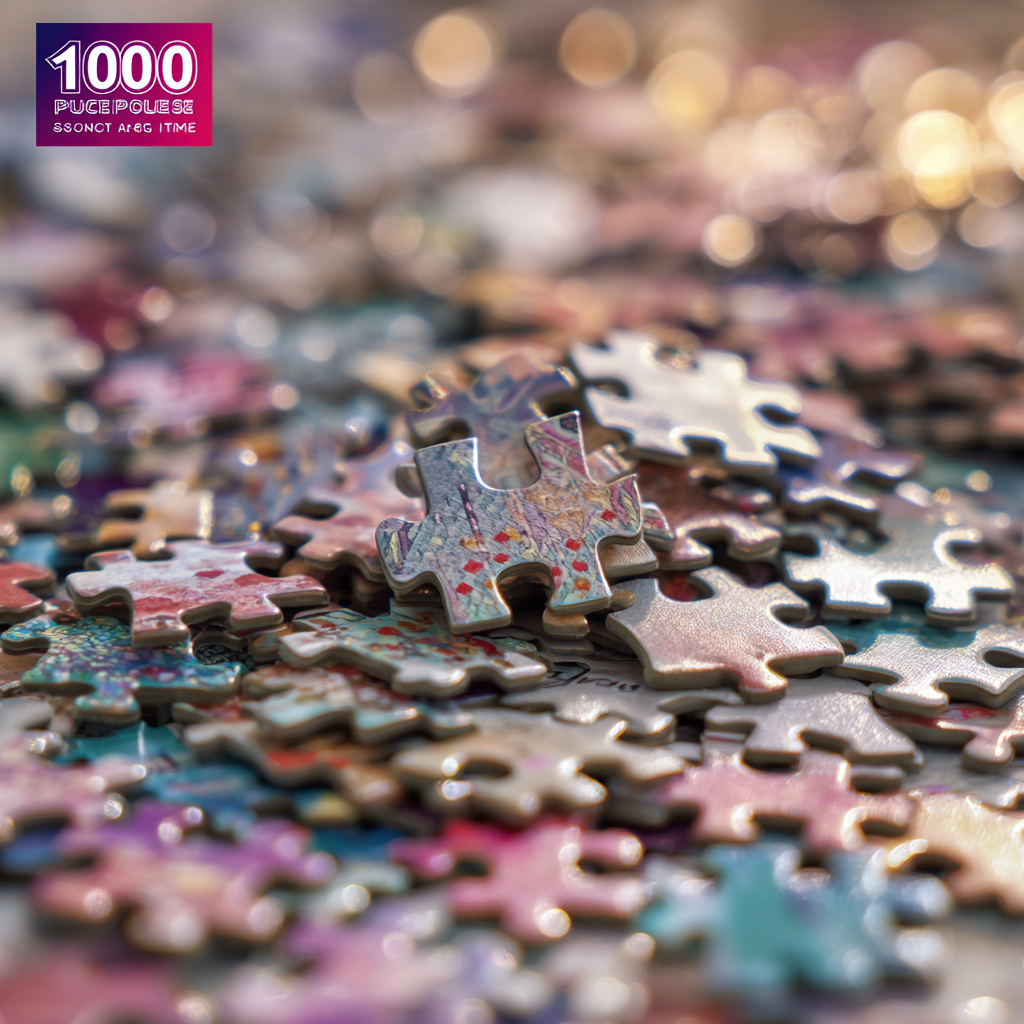10 Reasons Why the Best Jigsaw Puzzle 1000 Pieces Will Change Your Leisure Time
In today's fast-paced world, finding activities that promote relaxation and mental well-being is essential. One such activity is engaging with a
Jigsaw Puzzle 1000, which offers not only entertainment but also considerable cognitive benefits. According to a
2020 report by the American Psychological Association, puzzles can significantly enhance problem-solving skills and improve cognitive function, making them ideal for leisure time spent at home.
With the average American adult dedicating only about 5% of their day to leisure activities, incorporating a Jigsaw Puzzle 1000 can transform this small window into a rewarding experience.
Research indicates that individuals who regularly engage with puzzles demonstrate improved memory retention and lower stress levels. Thus, uncovering the
10 compelling reasons why the best Jigsaw Puzzle 1000 pieces can revolutionize your leisure time may inspire you to make this timeless pastime a staple in your daily routine.

The Psychological Benefits of Completing a 1000-Piece Jigsaw Puzzle
Engaging in a 1000-piece jigsaw puzzle offers profound psychological benefits that can transform your leisure time into a more fulfilling experience. Completing a complex puzzle activates various parts of your brain, enhancing cognitive functions such as
problem-solving, visual-spatial reasoning, and concentration. As you sort through pieces, you develop patience and perseverance, which can positively influence other areas of your life. The
sense of achievement gained from fitting those last few pieces together can lead to a boost in self-esteem and overall satisfaction.
To maximize your enjoyment, consider setting up a dedicated puzzle space free from distractions. This allows for a meditative atmosphere where you can truly immerse yourself in the task. Additionally, don’t hesitate to take breaks; stepping away can provide fresh perspectives on challenging sections. Remember to celebrate milestones throughout the process—tracking your progress fosters a sense of accomplishment and keeps you motivated.
Sharing the experience with friends or family can also amplify the psychological benefits. Collaborative puzzling promotes social interaction and communication, making the activity not only a mental exercise but also a bonding experience. Encourage discussions about strategies or observations, as these conversations can enhance both enjoyment and mental engagement.
Enhancing Family Bonding through Collaborative Puzzle Solving
Engaging a family in collaborative puzzle solving not only enhances leisure time but also fortifies family relationships. According to a study published in the Journal of Family Psychology, shared activities like puzzle-solving significantly boost communication and teamwork among family members. Working together on a 1000-piece jigsaw puzzle encourages cooperation, as family members must plan, strategize, and execute solutions collaboratively, which nurtures both problem-solving skills and emotional bonds.

To make the most out of your puzzle-solving sessions, try setting aside distinct times each week for family puzzle nights. This not only creates tradition, helping to foster a sense of belonging, but also allows family members to unwind from the stress of daily life. Another tip is to divide puzzle pieces based on color or edge pieces, making it easier for everyone to participate. This can encourage younger family members to engage and develop their organizational abilities, creating a fun and educational environment.
Moreover, involving children in these activities can significantly enhance their cognitive skills. Research from the American Psychological Association suggests that such activities improve concentration and patience. By tackling a challenging jigsaw puzzle together, families can cultivate a nurturing atmosphere, where younger members feel valued and heard, enhancing their emotional intelligence along the way.
Overcoming Stress and Anxiety with Mindful Puzzle Practice
Engaging in a mindful puzzle practice, particularly with 1000-piece jigsaw puzzles, has shown significant potential in overcoming stress and anxiety. Research published in the Journal of Health Psychology indicates that activities that require focused attention, such as puzzle-solving, can lower cortisol levels, the body's primary stress hormone. In fact, a study by the American Psychological Association found that individuals participating in mindfulness-based activities, including puzzles, reported a 30% reduction in anxiety levels over a six-week period.
The meditative nature of jigsaw puzzles encourages a flow state, where one can immerse oneself in the present moment. A survey conducted by the Puzzle Manufacturers Association revealed that 65% of puzzle enthusiasts use jigsaw puzzles as a form of stress relief, often citing the repetitive motion of placing pieces together as a helpful distraction from daily stressors. By concentrating on the vibrant colors and intricate designs, individuals can effectively shift their focus away from anxious thoughts, creating a sense of calm and accomplishment that enhances overall well-being.
Impact of Jigsaw Puzzle Practice on Stress Reduction
Building Patience and Focus through Challenging Puzzle Tasks
Engaging with a 1000-piece jigsaw puzzle isn’t just an enjoyable pastime; it significantly enhances traits such as patience and focus. According to a report by the American Psychological Association, activities requiring detailed cognitive engagement, like puzzling, can lead to improved attention spans. As puzzlers sift through various pieces, they develop a keen eye for detail, which translates into enhanced problem-solving skills both in puzzles and everyday situations.
Moreover, tackling a challenging puzzle can foster resilience and psychological endurance. A study published in the Journal of Positive Psychology indicates that activities involving sustained focus can lead to a state of flow, a mental state where one is fully immersed and engaged. This helps individuals cultivate patience as they learn to manage frustrations that arise from piecing together a complex image. Consequently, the act of completing a jigsaw puzzle becomes a metaphor for life, teaching us to appreciate the process and the rewards of persistence.

Exploring Creative Themes and Artwork in Jigsaw Puzzles
Jigsaw puzzles have evolved beyond mere entertainment; they are a canvas for creativity and artistic expression. The latest trends in puzzle designs emphasize intricate themes and breathtaking artwork that not only challenge the mind but also enhance the leisure experience. Imagine spending hours assembling a vibrant landscape or a captivating abstract piece that reflects the artist's vision. Each completed puzzle transforms into a unique work of art, perfect for displaying once the last piece is in place.
In recent years, artists have teamed up with puzzle manufacturers to create stunning visuals that appeal to various tastes. Whether it's a whimsical illustration or a serene nature scene, these puzzles are intricately designed to engage your senses and spark your imagination. They invite you to dive deep into a world of colors, patterns, and textures, offering an enjoyable blend of art and problem-solving. By turning leisure time into a creative endeavor, these jigsaw puzzles redefine how we perceive relaxation, making every session a delightful journey of discovery.
10 Reasons Why the Best Jigsaw Puzzle 1000 Pieces Will Change Your Leisure Time - Exploring Creative Themes and Artwork in Jigsaw Puzzles
| Reason |
Description |
Difficulty Level |
Creative Theme |
Artwork Style |
| Enhances Focus |
Working on puzzles helps improve concentration and attention to detail. |
Medium |
Nature |
Realistic |
| Stimulates Creativity |
Exploring different themes can inspire new ideas and creative thought. |
Medium |
Abstract |
Modern Art |
| Promotes Relaxation |
Engaging in puzzle-making can be a meditative and calming activity. |
Easy |
Landscapes |
Impressionist |
| Improves Problem-Solving Skills |
Finding pieces that fit together enhances logical thinking abilities. |
Hard |
Historical Scenes |
Classic |
| Fosters Teamwork |
Puzzles can be a fun group activity, promoting collaboration. |
Varied |
Cultural Art |
Traditional |
| Boosts Memory |
Engaging with different pieces strengthens memory and recall. |
Medium |
Fantasy |
Surrealism |
| Time Well Spent |
Completing puzzles provides a satisfying sense of accomplishment. |
Varied |
Space Themes |
Futuristic |
| Accessible Fun |
Puzzles can be enjoyed by individuals of all ages with no special equipment. |
Easy |
Everyday Life |
Candid |
| Enhances Mood |
Working on puzzles can increase feelings of happiness and contentment. |
Medium |
Seasonal Themes |
Whimsical |





